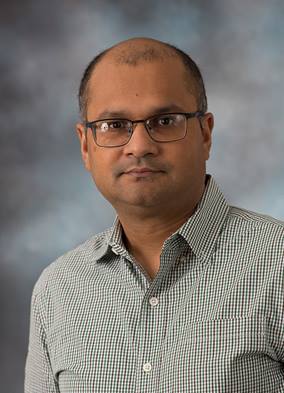
10 Jun Telluride Science Town Talk: Immune System, Complex, Calculable Symphony, 6/14!
The Telluride Science Research Center hosts Dr. Jayajit Das. His talk, titled “Harnessing the Power of Immunity,” continues this summer’s 7-week series of Town Talks presented by Telluride Science. The event takes place at the Telluride Conference Center in Mountain Village on Tuesday, June 14, 2022, 6:30 p.m. Admission is free; cash bar opens at 6:00 p.m.

Dr. Jayajit Das
Have you ever wondered how your body automatically fights off germs and infections everyday? Or why our immune systems don’t fight cancers before they become life-threatening? Or, maybe, how our immune systems might be bolstered by burgeoning technologies?
As a researcher at Ohio State University and Nationwide Children’s Hospital, Dr. Jayajit Das uses mathematical modeling to develop a mechanistic understanding of the immune system. The insights gained from this type of work will advance diagnosis and treatment for a wide range of diseases including HIV, cancer, and COVID-19.
Dr. Das is in Telluride this coming week for the 6th International Conference on Mathematical and Computational Medicine. He will present the Telluride Science Town Talk on Tuesday, June 14th at the Telluride Conference Center.
Expansive and complex, there are several times more cells in the immune system than there are stars in the galaxy. Much of the immune system’s inner operations remain a mystery to medical professionals, but the use of technology and mathematical imaging are helping us get a clearer picture.
“Thanks to technological advances in experimental and computer hardware technologies, our view of the immune system has changed dramatically over the last four decades,” Das explained. “We can now see a detailed but complex picture of the workings of our immune system in scales ranging from a single molecule to a single cell to a human subject and to human populations.”
Made up of trillions of cells working in elaborate concert, the immune system is a masterpiece of galactic complexity. By marrying physics, chemistry, biology, statistics, technology, and engineering, scientists are able to develop chemical treatments, vaccinations, and immune boosters that may enable our bodies to fight enemies with greater efficiency.
Das says that one of the things people don’t understand is how expansive the immune system really is. “It’s not made up of one or two different types of cells,” he continued, “but of trillions of cells that work in concert and communicate with various chemicals to mount a response that will lead to getting rid of a virus. So when we are thinking of vaccines or another way to stimulate the immune system to get rid of an invader, we are thinking about a small portion of the immune cells that will help.”
Getting a more comprehensive and accurate look at that symphony of cells is at the core of Das’ work. His broad science background allows for a holistic view of the immune system.
Das earned his PhD in physics before studying biology. Physics can quantify and define all the world’s physical processes, but biology is where the magic happens. While studying biology and physics at UC Berkeley for his post-doctorates degree, Das got into immunology:
“What are the rules with which these cells communicate with each other?” Das had wondered.
By statistically analyzing the chemical code of the immune system, scientists can better understand how immune cells work, from the microscopic scale to the macro scale of one’s entire immune system, and finally, to the full scale of how vast human populations’ immune systems respond to chemical cues.
About Telluride Science & Town Talks:
Telluride Science Town Talks are free public presentations by world-renowned scientists on topics of great current importance in science, technology, education, and public policy. The talks are moderated by Emmy and Peabody award-winning journalists, Judy Muller and George Lewis.
With a network of over 5,000 preeminent scientists from over 90 countries and 500 institutions, Telluride Science generates the fundamental knowledge base for new solutions in many important fields, including energy, medicine, water, climate, national security, and advanced materials for computing and manufacturing.
Visit telluridescience.org to learn more about Telluride Science and the capital campaign to transform the historic Telluride Depot into the Telluride Science & Innovation Center, a permanent home for Telluride Science and a global hub of inspired knowledge exchange and development where great minds meet to solve great challenges.


Barbara Hinterkopf
Posted at 15:03h, 14 JuneI am unable to attend tonight’s session but very interested in this topic.
Is it possible to get a transcript of the talk?